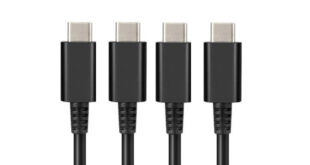The freemium model for video games isn’t just a sector that Nintendo will be avoiding – it’s one that president Satoru Iwata believes actually threatens the health of the industry.
"When we look at the entire system of freemium, it’s not always that everyone is happy with the offers," he told The Wall Street Journal. "Actually, there’s only a limited number of people who are willing to pay and many others are not paying for game titles at all.
"Nintendo is not interested. If we are going to do something similar, we would come up with a completely unique environment. I’m not interested in offering software for free of charge. That’s because I myself am one of the game developers, who in the future wants to make efforts so the value of the software will be appreciated by the consumers."
Iwata of course realises that even if his company chooses to avoid such business strategies, its competitors may not. Indeed, at E3 last week Sony was unveiled as the exclusive partner for the freemium FPS Dust 514.
"Of course, if Nintendo asks consumers to pay more money than the other platforms, then it’s Nintendo’s mission to provide the added value for which the people are willing to pay," Iwata conceded.
"In order to do that, we must remainuniqueand cannot be reproduced somewhere else. Something new, something fun and some surprise.
"If we were simply going to sayOK, the only the way we could sell more products is by decreasing the price, then there wouldn’t be a bright future and the entire industry will fold."
The Nintendo president even went on to argue that success goes beyond simply the raw revenue generated by a project.
"It’s a little different. It’s not just the end result," he countered. "We can’t simply compare the total revenue generated at the consequence of developing one thing. My point is about how we can keep the public’s perception of the software.
"If we are going to destroy the value of the game software — once we have done so, it’s a difficult job to recover from that situation.
"There are great examples of advertising and doing the microtranscactions, and several companies who have come up with that kind of system. But on the other hand, if you ask me, is this the system that can be sustained for the long time? I don’t know the answer. And, my point is that I’m not willing to go that direction, as well."

 MCV/DEVELOP News, events, research and jobs from the games industry
MCV/DEVELOP News, events, research and jobs from the games industry



